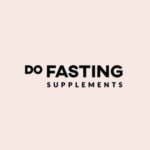30-Day Fast: What Is It, and What Are the Rules?
Some people need a more challenging fast when losing weight. Stepping outside your comfort zone may help you achieve your goals, but how is that possible? We explain what the 30-day fast is, the benefits you’ll gain, and tips for making this type of fast safe.

Intermittent fasting is one of the most popular ways to lose weight.
You can choose when to eat and what to eat while burning body fat. It’s all about finding a schedule that works for your goals.
Some people may need more challenging fasts when it comes to weight loss. This could be down to a slow metabolism or slow results when trying normal fasting methods. One challenge centers around the 30-day fast, which requires a lot of dedication and effort.
How can you begin this type of fast? Does it offer more health benefits?
In this article, you’ll discover more about the 30-day fast and how it works.
What Is a 30-Day Fast?
A 30-day fast is basically water fasting for 30 days. You can only drink water during those 30 days, which keeps you hydrated while the body starts burning fat. Refraining from eating food is supposed to boost the fat-burning state and encourage more weight loss.
Not eating for 30 days straight might sound impossible. However, studies have shown that people can survive up to two months without food. During this time, you need to drink adequate amounts of water to ensure your organs can function properly in the long term.
People who have experience with intermittent fasting tend to try water-fasting methods for weight loss. A 30-day water fast is made to cut out food intake completely. While it can sound harmful to the body, following the right steps is very important for fasting safely.
What Are the Reasons for the 30-Day Fast?
The 30-day fast is supposed to push your weight loss results even further. It’s also a challenge for people who can’t stick with basic calorie restrictions. Since intermittent fasting is about refraining from food, this fast extends the time that you cannot eat.
Even though fasting for 30 days is supposed to change your body weight, professional fasters find it to be healthy for the brain. You can set yourself goals during those 30 days and monitor how your body changes, especially when you just focus on drinking water every day.
Fasting for an extended time is also supposed to improve your health in general. People who want to improve their blood pressure, digestive system, and mental focus can attempt this challenge. It’s about getting out of your comfort zone and trying something new for fat loss.
If you want to try the 30-day fast for these reasons, always consult with your doctor. A healthcare provider can determine whether this fasting method is suitable. Medical supervision is required for people who are new to intermittent fasting and need extra guidance.
What Are the Benefits of a 30-Day Fast?
There are many benefits that derive from the 30-day fast. A water fast aims to cleanse your body and keep everything functioning properly long after the fasting window is over. Just remember to seek medical advice before fasting for 30 days or trying any challenging fast.
Here are 5 health benefits of the 30-day fast:
#1 Weight loss
Of course, weight loss is at the top of the list.
Not feeding your body calories will encourage it to burn stubborn weight. This type of fat hides beneath and around the organs, which can increase the risk of heart disease. However, once glycogen stores run out, your body will have no choice but to burn the fat for energy.
One study found that extended fasting caused a 4–7% reduction in waist circumference. People lost lower and upper belly fat when avoiding calories.
Just be aware that there aren’t many clinical trials when it comes to the 30-day fast. Some only prove that water fasting is different for everyone and may offer varied results. Naturally, the body will burn fat no matter which fast you’re completing.
#2 Longevity
Going through fasting for 30 days is believed to increase your lifespan. This is because fasting lowers blood pressure during significant calorie restriction. Fewer blood pressure spikes will improve your heart by relaxing blood vessels and removing excess fat.
People who gain all the benefits of fasting are bound to notice positive changes in the next few months or years. Eating less generally slows the rate of aging and prevents age-related diseases like Alzheimer’s, cancer, diabetes mellitus, osteoporosis, and hypertension.
#3 Mental clarity
During those intense 30 days, your brain will become much clearer.
Intermittent fasting removes toxins that would otherwise infect the body. These toxins travel in the bloodstream and almost slow down normal brain functions. Once those nuisances are gone, you’ll experience better thoughts, memory, thinking skills, and stronger senses.
People who need to use extra brain power in a job may benefit from this fast. Drinking only water clears stubborn brain fog and makes you more alert. One study discovered that fasting while increasing your water intake can also relieve anxiety and depression.
#4 Reduced cancer risk
Water fasting for 30 days reduces blood glucose levels, which makes it difficult for cancer cells to accumulate. If you didn’t know already, cancer feeds on glucose to grow properly. Not giving them the required energy will hinder cancer cell regeneration and protect your health.
#5 Lower insulin levels
Fasting for extended periods will completely change your eating habits. On a normal diet, you’ll eat healthy food to lose weight, but this can still increase insulin levels over time. Too much insulin increases the risk of type 2 diabetes, obesity, and cardiovascular disease.
However, trying the water fast could settle insulin production. Your pancreas can finally have a rest, as it won’t need to produce excess insulin due to the lack of food. Some studies even prove that some people don’t need insulin therapy after trying certain fasting methods.
What Are the Risks of a 30-Day Fast?
No matter how many fasting tips you follow, there will always be risks.
One main risk is that you’ll lose more muscle instead of fat. Losing muscle mass could lead to weakness in the limbs. Lower energy levels mean you can’t exercise properly or go out for a daily walk like normal. This may happen to people who don’t have much body fat, to begin with.

- Suppresses appetite
- Reduces cravings
- Encourages fat loss
Although it sounds contradicting, the water fast could make you dehydrated. Some people make the mistake of not drinking enough water on their fasting journey. It’s important to note that 20–30% of your water intake comes from food, so you have to make up for that amount.
Orthostatic hypotension is another problem that could occur. When your blood pressure drops after standing up, common symptoms like dizziness, weakness, and even fainting might take over. This is dangerous for people who are constantly moving around all day.
Lastly, anyone with medical conditions is more at risk of complications. People with chronic diseases or eating disorders should avoid the 30-day fast completely.
How to Do a 30-Day Fast Safely?
You have to take a few precautionary steps before attempting this 30-day fast. Jumping straight into the fast could increase the risk of long-term complications. Always start slow and listen to your body’s needs, as you don’t want to do more damage than good.
Just drinking plain water might sound intimidating, to begin with. To overcome this, add lemon juice or apple cider vinegar to the water and drink that for a few days. The new taste might encourage you to fast for longer and refrain from snacking during the extended fast.
Other safe ways to ease yourself into the fast include drinking herbal teas and only eating small amounts of food for the first week. You can slowly eliminate food once your body adjusts to the fast. Going into this water fast with more energy may give you that extra motivation.

- Useful progress tracker and calendar
- Calorie tracker to track daily caloric intake
- Over 5,000 nutritious recipes
The obvious way to fast safely is by consulting with your doctor. A medical professional can tell you how to start intermittent fasting while living a normal life. Not eating for 30 days has plenty of risks, so doctors are there to ensure you have good health while losing weight.
For extra guidance when fasting, the DoFasting app offers plenty of educational content. You can learn how to cut out more calories until you feel comfortable with avoiding food completely. DoFasting is there to guide your progress and give you motivation boosts every day.
People also use DoFasting to reduce water weight and understand more about short-term fasting. There are tips from professional fasters who know the benefits and risks. All you need to do is read the articles to discover common diet pitfalls and information about fasting phases.
Tips to Do a 30-Day Fast to Keep You Safe
Following certain tips may help prevent those intermittent fasting side effects. It’s always better to learn about the fast before diving in head first. As tempting as it might be to get started, you should follow a set number of rules to ensure you’re staying completely safe.
Below, you’ll find 5 tips for completing the 30-day fast:
#1 Start slow
There is no such thing as rushing a 30-day fast. Beginners need that extra time to change their eating schedule and conserve energy levels beforehand. Since you’ll be cutting out solid food for 30 days, it’s important to slowly remove certain meals from your routine day by day.
There is no such thing as rushing a 30-day fast. Beginners need that extra time to change their eating schedule and conserve energy levels beforehand. Since you’ll be cutting out solid food for 30 days, it’s important to slowly remove certain meals from your routine day by day.
#2 Drink lots of water
To even consider doing this fast, you have to drink lots of water every day. This beverage is key to maintaining adequate hydration levels. It might help increase how much water you drink beforehand, as you’ll understand the amount your body needs to function properly.
Not getting enough water could lead to chronic headaches, stomach pain, severe constipation, and even risks of fainting or losing brain functions. While these risks sound scary, reaching optimum hydration levels throughout the day will prevent your body from shutting down.
The average recommendation for non-fasters is 9 cups a day for women and 12 cups for men. You have to keep in mind that most of that water comes from food consumption. Instead, aim to have an extra 2–3 cups of water every day, as this ensures you don’t suffer from dehydration.
#3 Replenish your body
Your body will tell you when it needs replenishment.
For beginners, aim to consume bone broth within the first few days of fasting. Bone broth contains important nutrients that can replenish the body in a matter of minutes. Of course, when you go deeper into the 30-day fast, you don’t have to continue drinking this product.
Bone broth for weight loss works great, and this soup-like drink keeps you full, which prevents the urge to binge eat or snack on processed foods.
#4 Don’t forget electrolytes
Electrolytes are crucial to maintaining fluid balance in your body. You can get electrolytes from drinking plain water, but you can also buy electrolyte-infused waters. Snacking on slices of watermelon or banana will also fuel you with potassium, magnesium, and calcium.
#5 Listen to your body
Most of all, listen to what your body is saying. If you start noticing serious side effects, stop fasting completely and seek medical attention. The 30-day fast is not for everyone, so don’t feel disheartened if you have to eat food or break your progress to avoid health complications.
A Word From Our Nutritionist
Fasting for 30 days can be a challenging process. It is designed to push people out of their comfort zones and promote more weight loss over a few weeks. This might sound great, to begin with, but you should always do personal research to determine if it’s right for your goals.
Be aware that breastfeeding women, people with eating disorders, or those with high blood sugar levels should not attempt this fast. The same goes for anyone with long-term health conditions. It’s not worth risking your health to try something that might not work.
Always consult with your doctor before trying challenges like this. Medical professionals are there to guide your process and offer health recommendations. If you are in the middle of the 30-day fast and start feeling unwell, stop immediately and seek help right away.
Conclusion
So, is the 30-day fast right for you?
To change your current weight, you have to find new fat loss methods to explore. Fasting for 30 days might be a potential option for fasting lovers. Before going ahead with this challenge, consult with your doctor and gain medical advice about the health benefits and risks.

















































 Select your language:
Select your language: 








